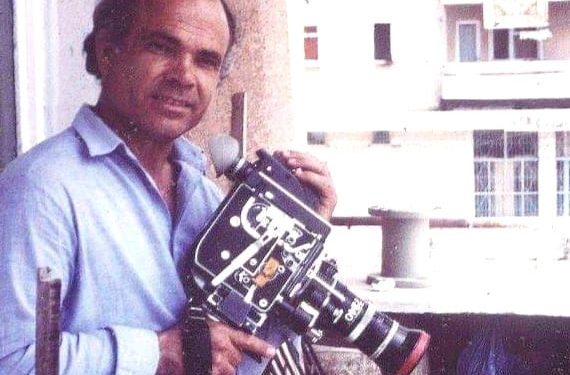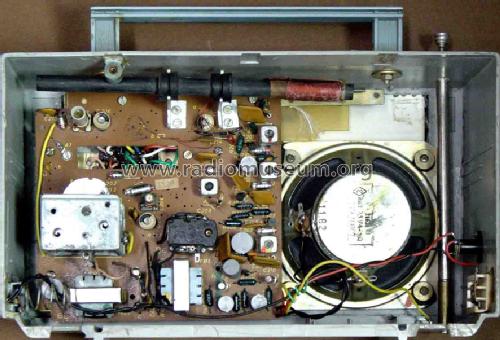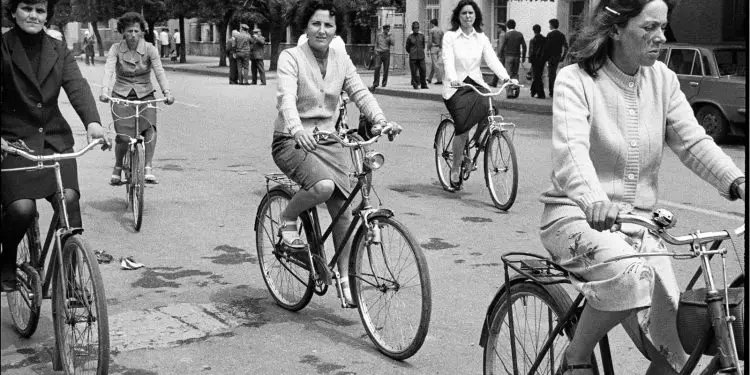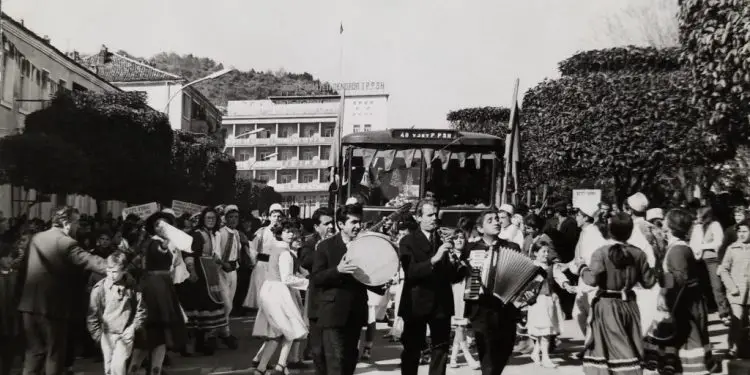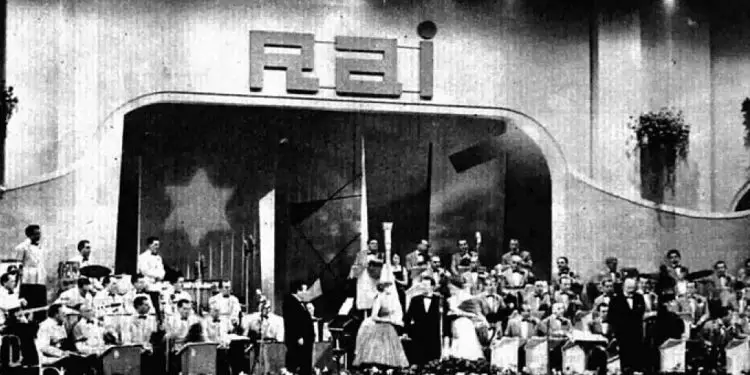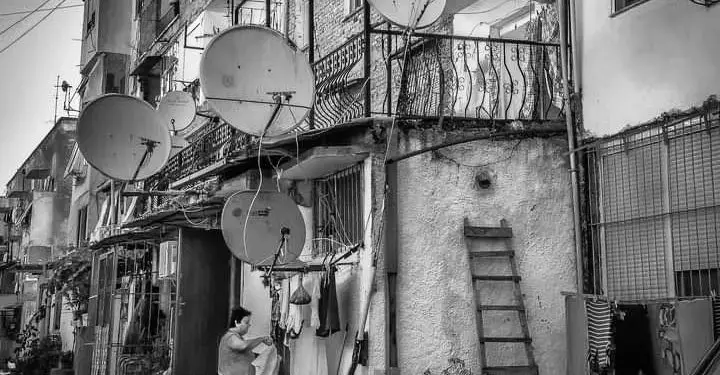By Vasil Qesari
Memorie.al/ The overthrow of the great totalitarian edifice in Albania would leave behind, not only the change of the system, accompanied by full hopes, mirages and cries of happiness but, unfortunately, also many wounds, dramas, victims, dust, ml lefe and disappointments from the most diverse. Ten years and more after that event, which deeply shook society, completely overturning many previous codes, rules and concepts, people still continue to ask themselves such questions as: What really happened in society Albanian, during the last 50 years of the dictatorship? How was it possible that the system managed to warp everything? Why did people accept it? What was the totalitarian logic of the transformation of society and the individual? How were the structures of totalitarian mechanisms conceived and functioning: propaganda, secret police and the exercise of the ideology of terror? How did it happen that among all the communist countries of Eastern Europe, Albania was considered an exception or a special case? Why did Enver Hoxha remain blindly, fanatically loyal to Stalin until the end, turning the country into a prison where violence, fear and purges continued until the end of the 80s? Why was the country so insanely isolated, locking people up between bunkers and barbed wire? Why, then, did all the above phenomena happen…?! The book “Post-scriptum for Dictatorship” does not claim to provide definitive answers to the above questions, or the complexity of the reasons that brought and maintained the totalitarian power in Albania. Nor is it a complete, deep and comprehensive fresco of the life and suffering that people experienced during that system. Its author, perhaps, has the merit that together with the retrospective view of the totalitarian period as well as the zeal of a passionate analyst, he has tried to turn his head back once again, to give not only his personal memories and opinions, but also to return once again to the vision of that era with the simple philosophy of preserving the Memory and supporting the Appeal to never forget the well-known maxim, that…the corpse’s nails and hair continue to grow even after death! Ten years or more after the great revolution, the book in question has current value and we hope it will be appreciated by the reader because, as an Albanian researcher also says… the greatest evil that can happen to a people comes when he fails to analyze his own past. An amnesic people are forced to be constantly neuropathic and repeat their painful experiences…!
Continued from the previous issue..
A LITTLE LIGHT IN THE BLACK TERRI
The years of succession brought even more ruin and poverty. The regime could not cope with the growing difficulties as well as the complete catastrophe of an economy entirely based on its own forces. After more than 4 decades of suffering, isolation and countless sacrifices, not only the people in general but also the members of the Party and its militants, began to no longer believe in the construction of a prosperous society which had been trumpeted for years by propaganda official, as an earthly paradise.
Meanwhile, on the political level, the agony of the regime, which had started before the dictator’s death and lasted until 1990, was gradually being accompanied by some rivalry between the determined partisans of continuity and those of change. These latter were said to be willing to accept softening and reform, both in the rigid laws of the centralized economy and in politics. In general, many intellectuals were of that opinion, with or without state and party functions.
(Meanwhile, the overwhelming majority of high-ranking officials who were part of the new blood of the nomenclature, as well as cadres born after the war, were so greedy for power and privileges that they were ready to do anything, including treason, to achieve them to the Party itself).
According to the word circulating, it was said that the senior leadership was slowly splitting into two groups with different ideas and visions about the reality of the country’s future. One, who was bigger and more powerful, was a supporter of Nexhmije Hoxha and fanatically defended the Stalinist continuation of Enver’s line. The other, who was thought to be the least in number, was said to support Ramiz Ali’s attempts at change.
True or false, the fact those three years after the dictator’s death, the first signs of some long-awaited liberalism began to appear. People seemed to breathe a little more freely. The impression was created that, suddenly, a small ray of light appeared in the darkness of life. Campaigns, rallies, speeches and initiatives of the Democratic Front Party against foreign enemies and performances became more and rarer, until they almost disappeared altogether. In that context, the atmosphere of conspiracy around the small screen, which was the only antidote against the totalitarian infection, became more and more non-existent.
…The hunt for antennas for tracking foreign television stations was forgotten. On the roofs, roofs of houses and buildings, more and more antennas of the most different types built by hand began to appear. Vertical, horizontal, crossed antennas, with two, four or six vibrators and dozens of elements. Together with them, a real “race” started to achieve the best possible results in capturing signals.
The few magazines for radio – electronics that could barely get in from outside, were sought by “candles” by various amateurs, who were not technicians or engineers but… carpenters, doctors, teachers or even… barbers and waiters. Everyone was trying to find in them different schemes for building antennas, amplifiers and, above all, for making the famous “cans”, by means of which erotic films broadcast on the UHF band could also be watched…!
Thus, foreign television has turned into a disease, an obsession, fixation or mass psychosis. Of course, all this had its own explanation. The “forbidden apple”, which the regime had banned for many years, was enviable and everyone tried to “bite” it as soon as possible. The long and absurd isolation, the strict fight against any contact and influence from the “bourgeois-revisionist” culture. , instead of making people indifferent and contemptuous of everything foreign, (as the Party’s propaganda had constantly wished and worked), in fact it had the opposite effect and turned into a real “boomerang”. .!
It was clear that the regime no longer felt as powerful as before. Intentionally or unintentionally, the fierce ideological war, in the face of the alarm of the economic disaster, passed into the background and was almost forgotten. Meanwhile, it seemed that even the gears of the propaganda were rusted and excessively worn and even, from time to time, stuck in place. Its former mechanism, oiled with diligence and care; always perfect, precise and with the rhythm of a Swiss watch, it seemed that it no longer had the previous effect of fright, threat and fear.
The images from the Italian, Yugoslav and Greek television screens, in addition to the inspiration for freedom, for days and more brought the dream of consumerism, mirages for another life. Now, the television waves could no longer be stopped and foreign television anchors could not be punished for agitation and propaganda.
The magical dimension of television was doing its job. The people, especially the younger generation, aspired for a better life. Precisely, from his images, people saw that changes were taking place in various countries of the East. But in Albania, nothing moved. Nothing changed. On the contrary. The reality became more and more difficult. Queues in shops were even longer. Meanwhile, the temptation to TV commercials with images that present abundant food, clothing, electrical household items, detergents, shampoos, creams and chewing gum is getting bigger and bigger.
Under such circumstances, it seemed that the regime was forced to make some concessions. But his taming made people even more courageous and practical. Certain liberalization began in daily life, while in the cities young people began to openly follow foreign fashion. Little by little, equipment, goods and clothing from the west began to enter the country.
This was achieved not only by the more frequent departures of packages from foreign countries (the embargo on receiving them has already been lifted), but also through the smuggling of gold by export drivers. (They took out significant amounts of coins, with which they then bought televisions, tape recorders, jewelry, wristwatches, shoes, various clothes, etc.)
Many young people, with a thousand tricks, managed to fulfill the great dream of life: to buy a pair of blue jeans. (However, they could only be found with a friend and they cost three monthly salaries together). While, brides and daughters, in cities or in villages, began to wear more and more rings, bracelets and pendants painted with gold, which and why they were bought quite cheaply in the markets of Turkey, Montenegro and Macedonia, were sold in Albania almost a hundred fold.
The desire, to dress differently, was to some extent possible even for those who did not have the opportunity. Hundreds of girls and boys, some of them tailors and most of them amateurs, turned the kitchen annexes into private workshops, where they cut and sewed fashionable dresses, pants, skirts and blouses, with patterns taken from the clothes of the artists of television shows or catalogs foreigners who entered Albania illegally. Meanwhile, not only in the streets of Tirana but also in those of many other cities, many private motorcycles began to circulate.
(Until then, they were extremely rare and state property. A few private motorcycles, of the Moto – Guzzi and Gilera brands, manufactured in the 30s and left over from the time of the Italian occupation, were considered luxury and were inherited from one generation to the next) .
But now, their number was increasing day by day. This happened, either because of the issuance of an internal order which finally allowed their customs clearance (where staggering sums were paid), but also because of the fact that many of the children and family members of members of the Political Bureau, ministers, ambassadors of other high party and state functionaries, after studies, specializations or medical visits abroad, who made it a tradition to bring with them, among others, a motorcycle.
But, what made people not believe their eyes and caused trouble in the ranks of Party militants was, first, allowing the breaking of gold in the State Banks, taking the money sent by the fugitives from their families and, later after, the opening of dollar stores. Opened for the first time in Saranda and Gjirokastër, the latter were then extended too many other cities.
In Vlora, the dollar store was installed on the first floor of a 7-story building (next to the market). It was always full, inside and out. For days, crowds of people pushed in front of the shop windows, eagerly looking at articles and things that you had dreamed of for years. They were, for the most part, equipment (televisions, washing machines, refrigerators, etc.), most of which you had only seen in the homes of a certain category of people.
But here, the time had come for miracles to happen…! Now, in dollar stores, those who managed to secure the American greenbacks (with the portrait of George Washington and the flag of the state most hated by the regime), could easily buy televisions, tape recorders, washing machines, refrigerators, vacuum cleaners and electric heaters. But,now, the privileged ones were no longer those of the past. Those who had functions and posts. Those who had fought for the ideals of the Party.
Yes! That privilege was only for those who had dollars. So, consequently, those who had people abroad, in economic emigration and fugitives. This was really a scandal! Many veterans and ardent militants started writing letters full of complaints:
What was happening like this?! Was the state supporting and protecting the enemies? No…! Allowing such stores that a scandal. Without a doubt, up there in Tirana, the fish had started to smell from the head…! Ah, if Enver were alive, those things could not even be thought of, let alone happen…!
And in foreign relations, phenomena occurred that could not even be thought of before. After 1985 and the peaceful spirit of Enver’s book “Two friendly peoples”, exchanges with the neighboring country, Greece, began to become more and more frequent. Initially, the ice was broken by the well-known singer Marinela, and after her there were not only tours with singers, but also exchanges of official visits, participation in trade fairs, artistic exchanges and in other fields.
In that context, for the first time after the war, by order from above, the demands of hundreds and hundreds of Albanian immigrants living in Greece were tolerated. (Separated alive from their people since 50 years, they have long sought in vain to be provided with entry visas to visit their families and their country). But, of course, the doors were not opened with both hands and visas were not given as it could be. Initially, to satisfy everyone and to have the situation under control, safety suggested an original solution. Allowing organized visits in tourist groups. So, selected, controlled and monitored, only in two districts: Gjirokastër and Sarandë.
Lefter K. from Vlora tells: Two sons of my uncle living in Athens sent me an unexpected telegram, informing me that in three days they would be in Saranda with a “tourist” group. The news filled us with emotions. I knew that I had cousins in Greece (my father had died of a heart attack, so he could not meet his brother in Athens, with whom he had been separated since childhood), but I had only seen them in photographs.
Anyway. I went to Saranda and showed up at the “Butrinti” tourist hotel. Hall and its bar were full of foreigners and Albanians. Most of the crowd was old women dressed all in black, just like our old women on the coast. Everywhere you see very touching scenes. People hugged, cried, took pictures, exchanged gifts and again shed tears…!
…In that touching and dramatic environment, only a few “types” with cold and observed faces did not move a single muscle in their faces. In fact, they were not there to meet anyone. No…! Their mission was completely different. To observe and investigate everything around and, then, compile the relevant reports: What was the identity of the persons who had come to meet the “strangers”? Where did they come from? What biography did they have? What did they give and receive between them…?!
Later that day, together with my uncle’s two sons, we left the hotel lobby in the flower garden, outside in the yard. The “tourist” day was ending. Before we parted, one of the cousins even asked me: How do you live here…? I understood exactly what you meant. I was embarrassed. How should I answer it? I looked around with doubt and fear and, after making sure that there was no one around, I took courage and told him: Our life here has been and is a hell and our whole family has removed the olive black…! Memorie.al




